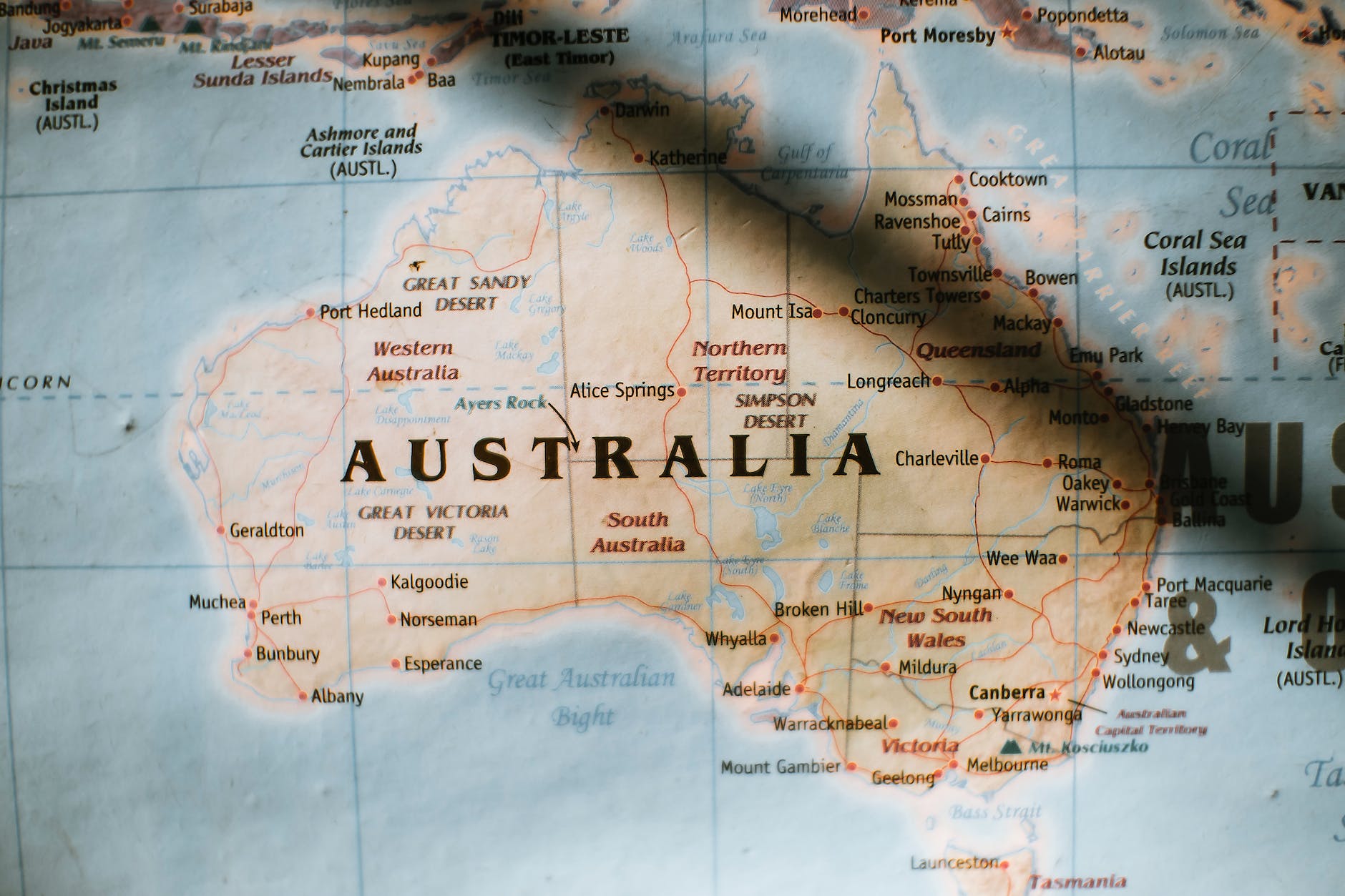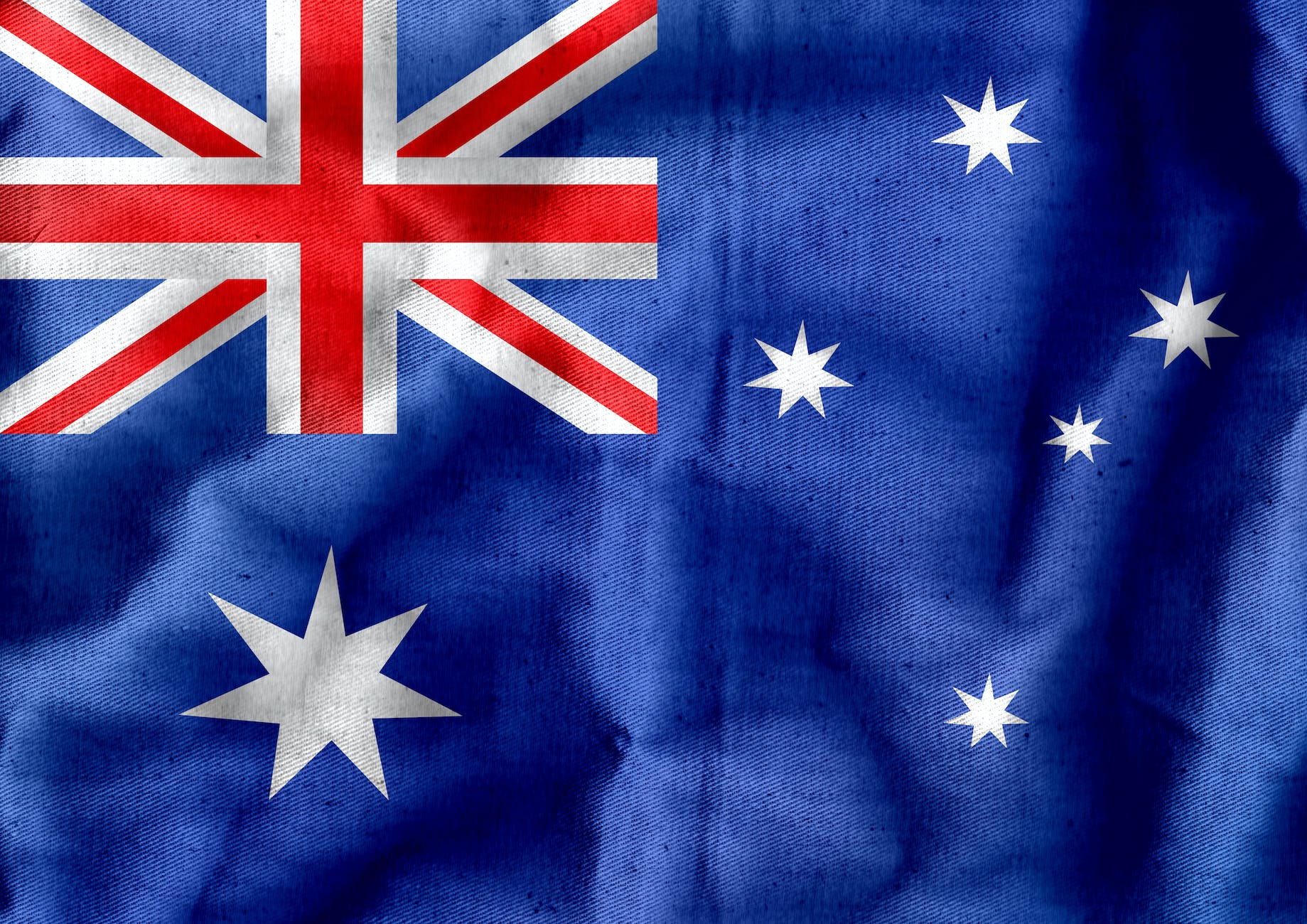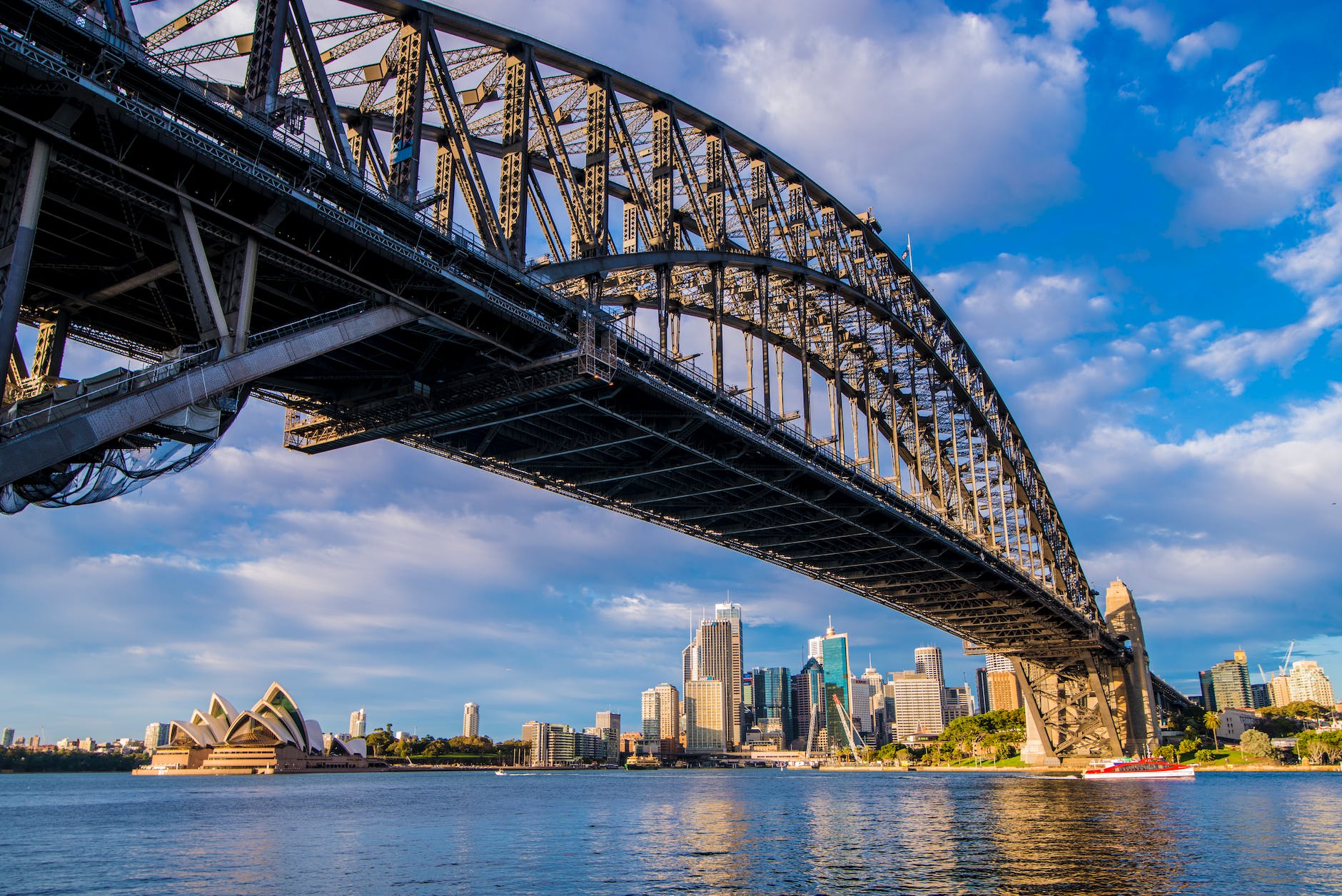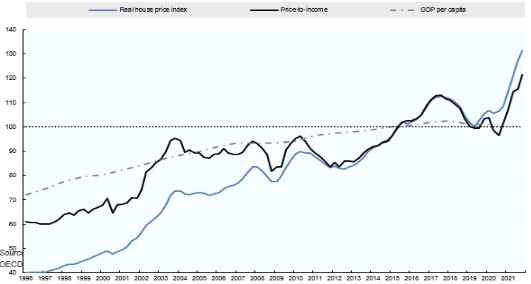
Australia has set the bar too low, when it comes to societal expectations around things like civic responsibility. Decades of neoliberalism infecting our governments on both sides of politics has seen a huge slide in respect for the role of government in managing our social contract. The late Kerry Packer was lionised for his tough talk to the senate on tax minimisation and its merits in Australian life. We now face an impending tax revenue crisis, as corporations continue to dodge their taxation responsibilities through clever accounting practices. Wealthy Australians think that it is OK to avoid paying tax wherever they can. Packer told his audience that smart people don’t pay tax where possible and that government’s waste their money anyway. This has become an established narrative in the Aussie cultural canon.

Australian Expectations About Civil Responsibilities
Australia, as a colonial outpost in the new world, was founded on the principles of meritocracy with a few helpings of nepotism and boy’s club corruption. Life was hard in the early years for settlers and convicts. The NSW Corps was a hotbed of military corruption, which has gone on and flourished in many state police forces around the nation. Politicians and parliamentarians established lax rules or no rules for themselves, as we have discovered over the years. The rule of law in Australia is rarely applied to the wealthy and powerful. Despite these oversights life in Oz has developed superficially into episodes of Neighbours for many middle class denizens. A warm climate and sleepy pace of life in the suburbs on the coastal fringes of the great southern land appears attractive on the TV screen.
The distribution of wealth has become more inequitable in the last few decades. Billionaires have proliferated at the top end, whilst the majority have seen their economic fortunes stagnate. The promises of trickle down economics have not eventuated, as wage growth in Australia has stalled in real terms over the last 20 years.
Robert Sudha hamilton
“The wages of Australian workers rose by 2.4 per cent over the past year, according to data released by the Australian Bureau of Statistics on Wednesday.
But with inflation at 5.1 per cent, real wages are going backwards. “
- (Read, May 2022)

Privatising Australia Began Our Plummet
The privatisation boom was fuelled on the back of promises of reduced energy bills from the utilities that were gobbled up by corporate interests. These have not eventuated and local jobs have gone in these businesses offshore via outsourcing. Telstra, Qantas, CBA, state energy entities, and the list goes on – are all major examples of state owned assets passing into the hands of the private sector. Hundreds of billions of dollars of future revenue gone from the government revenue sheet. If you look at the success of CBA and how much money it has made for its shareholders in the last 30 years it makes for eye watering reading. CBA made $9.673 billion in 2022 alone. Yes, private companies are often run more profitably than government owned bodies. However, they also strip jobs from the local economy and reduce spending there also. Billionaires have been created via neoliberalism, Reagonomics, Thatcherism whatever you want to call it. A super wealthy few at the expense of the many is not good government and not good for society as a whole. The public narrative becomes – you can grow up to become a billionaire. This dangled carrot is based on assumptions of an unfair and inequitable society.
The bullshit story tells those aspiring to this status that these extremely wealthy individuals deserve it on the back of hard work and success. However, the truth reveals that people like Packer inherited their opportunity and were able to make the best of it through influence and favour. When privatisation of rich state owned assets happen it is the well placed and wealthy who can afford to buy these golden plums. Ordinary folk never get a look in.

Billionaires Bad For Nations
Wealthy, successful Australians tell themselves that they work hard for their money and status. The narrative is that these individuals are somehow more deserving than those who work without opportunity. Donald Trump in America is a prime example of this fictitious story perpetuated upon the general public. Trump portrayed himself as a self-made man but in reality inherited vast wealth from his property developer father. Trump was sold to the American public as a celebrity billionaire ready to make America great again. In fact, Trump was a failed businessman being propped up by Russian money since the 1990s. This is why he has fought so hard to prevent his tax returns from being made public, unlike all other American presidents in the past. The American illustration is pertinent because Australia largely copies the cultural and economic example set by the yanks. Our politicians follow the trends established by their colleagues in the bigger nations. The conservative politicians in Australia would like to see higher education and health privatised like they are in America. This is despite both these systems in the US failing the vast majority of Americans in economic terms. The right wing side of politics is happy for a small elite section of white citizens to become increasingly wealthy at the expense of the rest.
“The US healthcare system does not provide universal coverage and can be defined as a mixed system, where publicly financed government Medicare and Medicaid (discussed here) health coverage coexists with privately financed (private health insurance plans) market coverage. Out-of-pocket payments and market provision of coverage predominate as a means of financing and providing healthcare.2 As of 2019, around 50% of citizens received private insurance coverage through their employer (group insurance), 6% received private insurance through health insurance marketplaces (nongroup insurance) (discussed here), 20% of citizens relied on Medicaid, 14% on Medicare, and 1% on other public forms of insurance (eg, Veterans Health Administration [VHA] and Military Health Service [MHS]), leaving 9% of Americans uninsured.3”

Thankfully, terrible conservative leaders like Tony Abbott failed in the bid to further lead Australia down the privatisation rabbit hole. Medicare is not perfect and it has recently been revealed to be full of holes and widely being rorted by its providers but it is a sacred cow in Australia. Similarly, charging huge fees for higher education saddles young students with debt and reduces opportunities for poorer Australians. Private enterprise does not automatically make a better economic fist of running all sectors. Health and education are industries not best served by the profit motive first and foremost. The privatisation of skills training and the dismantling of the TAFE system in Australia has been a huge failure. Privatisation lacks oversight here in Australia and globally.
Government monitoring bodies have been toothless tigers and largely ignored by the sectors supposedly under their sway. We have seen this in banking, gambling, aged care, and disability – with dreadful outcomes for those vulnerable Australians at the mercy of the market driven players running things.
Another popular narrative employed by conservative forces is to whip up public support for pillorying the ‘dole bludger’. Every society needs a whipping post and the ‘so-called’ welfare cheat is a favourite in Australia. The lazy good for nothing Aussie who won’t work and takes government handouts is top of the pops with the media pandering to social conservatives. Linked to racist attacks on Aborigines not so long ago it popularises the story that there are legions of bludgers out there destroying the fabric of our society. This is complete BS, with the number of individuals actually filling this bill miniscule. Similarly, shock jock attacks on the LBGQTI+ community and transexuals in particular is another rallying cry for social conservatives. This has been borrowed from the American playbook with bogus claims of educational material featuring same sex characters brainwashing innocent kids at school and legions of transexual athletes invading women’s sport. Fascists always have enemies of good upstanding socially conservative citizens at the ready to drum up support for their messages. Pointing the finger and dog whistling are strategies long employed by right wing parties in their bid for popularity and getting their candidates elected.
The dole bludger is an easy target, as these individuals on welfare are generally poor and have no organisational structure with which to fight back. Social conservatives love a soft target. Interestingly, we don’t hear about tax avoiders damaging the fabric of our society. When economically they do far more to reduce the social cohesion of our communities.
If governments cannot raise enough revenue from taxation they cannot run the social programs the community desires and requires. The narrative surrounding those conservatives on the right tells us that ‘they will pay for the things their families need and that they don’t require governments to do it for them.’ This citizen state ethos only works for those who can afford to pay for these things and not for the poor and the vulnerable within our nation. The strong survive and thrive and the weak go under in this Ayn Rand philosophy. What is actually required is a fairer Australia for all. We are not all competing on a level playing field.

Australians need to do more and demand more of their fellow and sister Australians. It is not enough to work and live in your own little realm, we are all part of a broader nation. It is not right that corporations and wealthy individuals manage to avoid paying their share of tax. This needs to be voiced by ordinary Australians and governments need to take heed. The growing inequality and inequity in Australia needs to be addressed. The price of neoliberalism must be examined and held accountable to the country and its citizens. The ridiculous property prices in our cities, which have greatly amplified the economic divide, have to be reined in. It all began with former PM John Howard.
“Similarly, at first the Howard government thought that rising home prices was good news: “I haven’t found anybody stopping me in the streets, shaking their fists and saying John, I’m angry that the value of my house has gone up,” said Howard during the first years of the housing boom, a tone that would change later as housing affordability became a vexed political issue.
While the government’s early attitude was blasé, and while some of its measures, such as cutting capital gains tax, could be said to have exacerbated the problem, the key factors driving the boom in house prices were not the government’s doing. They arose from a combination of unmet demand, increasing aspirations for better houses among those who already owned one, low interest rates and the relatively easy availability of money from lending institutions. Even a government determined to restrain the increasing prices would have had limited capacity to do so.”
The gutless core of Australian governments of both political persuasions would do little or nothing to address runaway property prices over the next 25 years.
“On housing affordability, Howard introduced the capital-gains-tax concession; bolstered the first-home buyers’ grant; and boosted immigration – all putting pressure on housing demand. Investor entry into the housing market took off from the moment the capital-gains-tax concession began. We wallow helplessly in the backwash of these idiotic decisions.
Speaking of tax, Howard introduced the over-60 superannuation tax holiday, other super concessions, family payments to middle-income households, age-based tax concessions, and lots of income-tax breaks for middle to higher-income households. These have been difficult if not impossible to wind back and have increased inequality in Australia.
In short, Howard squandered the mining boom on buying votes and allowing miners to be lightly taxed.”
- (Hull, SMH, 2017)
Yes, those big mining companies that never seem to pay tax in Australia. Glencore, Exxon Mobil, Santos, Ampol, Shell, Woodside, and loads more generate billions but pay little or no tax.
“Almost one-third of large corporations paid no income tax in Australia in 2020-2021, including more than half of the nation’s major mining, energy and water companies, a new report shows.
The Australian Taxation Office released its annual tax transparency report on Thursday, which reveals the amount of tax paid by 2,468 large and medium corporate entities. Of those, 782 (32%) paid no tax at all in the financial year, down from a high of 36% in 2015-16.”
- (Knaus, The Guardian, 2022)

Our federal and state governments repeatedly do deals with these fossil fuel corporate giants and allow them to do business here without paying any where near their share of tax. Why? Why do we allow this to go on when we face some very tough times just around the corner. It is OK for the little gal and guy to suffer high costs of living, record low wage growth, an RBA jacking up interest rates but successive governments won’t touch the big corporate players because they can bite back politically. Our monitoring bodies are toothless tigers stripped of power after decades of neoliberalism delivering real power to private interests. Our governments are likewise wishy washy camera hungry paper men and women walking on a shaky bridge. Real power does not reside with these individuals. Elected officials don’t really rate up against those invested in making large amounts of money for powerful corporations.
Australians have been fooled into deriding their governments by narratives set out by those heavily invested in making serious money. The political parties are controlled by their campaign donors and there is an endless merry-go-round of appointments to industry for retiring politicians who have done the right thing by their corporate mates.
This has been going on for decades and very little changes in Australia at the top of the tree. Witness the resistance to creating a federal independent commission against corruption by successive governments. We have one at last and it will be interesting to see if it is more than just another toothless tiger. Australian apathy is well known when it comes to doing anything about endemic problems. The friendly climate and inviting beaches welcome avoidance and the illusion of being on a permanent holiday. However, as economic issues begin to bite the injustices and inequalities may prove to be more provocative than before.
Serial tax avoiders may come into sharper focus if an independent media can continue to gain public attention over the poisonous Murdoch empire. The ABC has been made more submissive by repeated conservative government beatings and cuts. The media landscape in Australia is tame and largely follows a path set out by its corporate masters.

Nothing much changes in Australia with timid governments and a media riddled with public relation driven narratives. Australia has set the bar too low when it comes to the civic responsibilities of citizens and corporations. The narrative of private interests driving the main game has been at the forefront for too long. The pandemic was an opportunity for community interest to gazump that of the individual – and we saw those who marched in the streets in protest. Right wing groups with their demands for citizen rights, unwilling to make any sacrifices for the vulnerable among us. Rights vs responsibilities. There are times when what is owed to the many is greater than what is owed to you. Civic duty is not a trendy idea. If we continue to set the bar too low in Australia, we will only see more inequity and extreme social and economic divides.
It is time, we stop lionising those with lots of money and start questioning how they managed to get hold of it. What pathways led them to their pots of gold? It is not an even playing field on which to compete.
Indigenous Australians are coming from a long way back because of decades of state and social neglect. Women have only recently broken free of the shackles of discrimination and are still not paid an equal wage in many fields. Those Australians with a disability are still fighting for access to opportunity. Minority groups remain excluded from the most fertile opportunities, as cliques of white Australians reserve the best for themselves. These are the facts of life in a modern Australia. Too many Aussies denigrate their elected representatives and back their corporate masters in – they follow the money over anything else. Housing costing a million dollars on average and rents going through the roof. What sort of good governance and corporate behaviour has overseen the nation becoming too expensive for its denizens to live in? Will Australians find a voice to protest the state of the nation? Will they elect governments with a backbone to change things? Will they oversee the political shake up of campaign funding to produce political leaders capable of standing up to the vested interests? It will be interesting to observe what happens.
Robert Sudha Hamilton
Robert Sudha Hamilton is the author of Money Matters: Navigating Credit, Debt & Financial Freedom
©MidasWord














